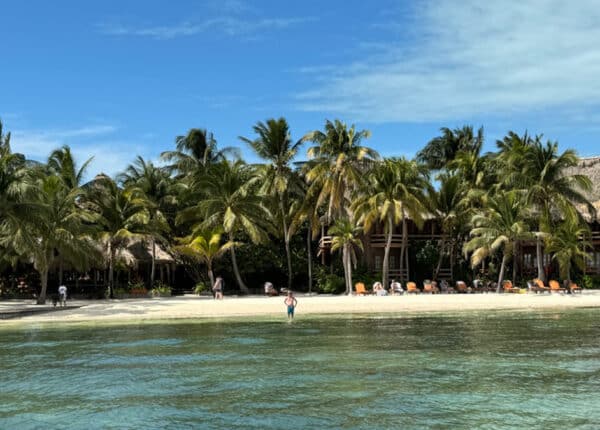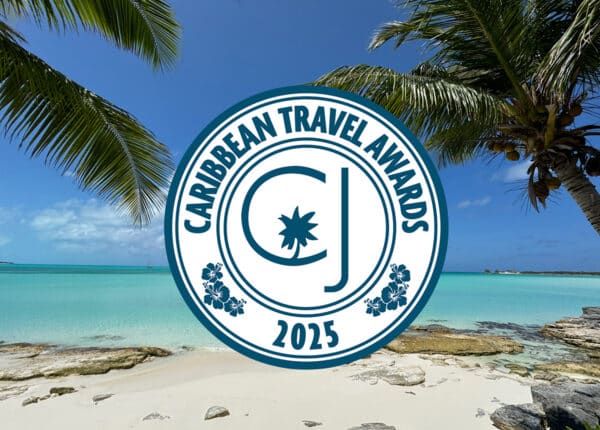Talking Caribbean Travel With Expedia’s Marco Tagliatti
Above: Luperón in the Dominican Republic (Photo: GDR)
By Alexander Britell
Despite its traditional allure as a vacation destination, the Caribbean is finding itself in an increasingly competitive global travel marketplace. But while the onset of the global financial crisis has led to several lean years, the Caribbean seems to be showing more tourism growth of late, according to Marco Tagliatti, Expedia’s vice president of lodging supply in Latin America and the Caribbean. To learn more, Caribbean Journal talked to Tagliatti about the company’s growth in the Caribbean, the promise of Brazilian tourists and about the new Expedia Traveler Preference programme, which gives travelers the option of paying at the moment of purchase online or when they check out from the hotel. ETP, which has concluded early testing, is showing significant revenue increases through increased booking volumes and increased booking values, the company says.
How do you see the current position of the Caribbean market right now?
For 2012, it looks very good for the Caribbean and for Expedia. It’s not over yet. But it’s another year of significant growth in the range of 20 to 25 percent [in terms of bookings], which has been more or less the pace for the two previous years, so it’s kind of consistent growth. This is an average [figure]— but overall, that’s the performance. The top performer in terms of markets we’ve been seeing is Puerto Rico, which has been a very, very solid performer for us this year. Also, the Dominican Republic, which has seen a huge increase in supply. The Dominican Republic now has more rooms than Cancun. So I would say it’s a striking example. The other country that is growing very well is the Bahamas. So I would call out these three islands as the top performers.
What’s been driving that growth?
The Caribbean has a very specific advantage for Expedia in that it you cannot drive to the Caribbean — you have to take a flight, and this means that the product sells very well in packages — a flight together with a hotel, so the customer can book the two of them, and by booking them together the customer saves money. That savings can be significant, depending on the day and the flight, in the range of several hundred dollars.
Why has Puerto Rico shown such strong improvement?
That’s a good question. I know why it did so well with Expedia — that’s something I can definitely answer. I would say it’s from a couple of categories. One is, of course, the collaboration we have with a lot of tourist boards, who are one of our best partners. Puerto Rico’s tourist board has been very active in using Expedia and channeling that to promote the market. So this attracts a lot of eyeballs to Puerto Rico from customers that are just browsing Expedia, deciding where to go for their next vacation. So I think the marketing investment drove more traffic to Puerto Rico. The other thing is related to hotels. I have to say that this year particularly, we’ve been working very well with the hotels in designing very powerful package strategies. That means being very smart in using packages to address longer booking windows, or a longer length of stays, or specific origination countries, like [getting] more Canadians, more Americans or, for example, Americans who book 90 days in advance and stay for at least four days. This year, we have seen a lot of hotels in Puerto Rico being very proactive and smart in using all of the tools that Expedia gives them to address different segments of customers. So I would say it’s both of these reasons — more traffic, and a better job by Expedia to convert this traffic into travelers.
Have the source markets for Caribbean travel been changing?
Historically, the US has been the main source. This year, the US has grown at a pace that belongs more to an emerging market than to the US market. So we’ve been seeing our business from the US growing, which is kind of a surprise. In the previous year, I think the growth had been driven by Canadians or Europeans. This year, we’ve seen strong business coming from the US, but we’re also seeing emerging original business from places like Brazil. Brazil is one of the top origination markets for the Caribbean, specifically the Dominican Republic, and one of the top 10 preferred destinations for Brazilians worldwide. So in that ranking on Expedia, the Dominican Republic was number one. So that’s very significant. But again, this year, the nice surprise we had this year was to see a very solid business from the US.
You recently launched the new Traveler Preference programme — can you talk about that?
This is an additional, new functionality we are offering to customers in the direction of making life easier for the customer. It’s a little like the package technology I mentioned before — where you can easily combine two products in one. It gives a transaction even lower friction, by letting customers decide how they want to pay. Until a few weeks ago, there was only one single way for the customer to pay and buy on Expedia, which was, you typed in your credit card, and the transaction happened at that time, and Expedia took the money and paid the hotel. What we are telling the customer now is that at the moment of booking, the customer can decide to pay at checkout from the hotel. I’m Italian, and this is a very common model in Europe. On the other side of the ocean, we like to pay at the hotel even when we book online. So we recognize that there are different customers — customers who like to pay up front and forget about it, or those want to pay at checkout. Of course, every customer still has to type in their credit card, because of the cancellation policy, but, again, the key point is that the customers can choose when to pay — that’s the innovation.
Are there any other new initiatives you’re looking at in the region?
One is very specific to the Latin American region. In Latin America — talking specifically about the two largest markets, Brazil and Mexico, customers like to buy stuff in installments. This is super common in Brazil — you can even buy coffee in installments. But it’s also strong in Mexico. So Expedia, for the first time, introduced installment payments for Brazilians, something we started with the Brazilian market. So a Brazilian customer now, with the addition of Traveler Preference, will have three options: pay immediately, pay in installments, or pay at checkout. And, as I said, Brazil is an important origination market for the Caribbean, so this origination will drive even more customers to the Caribbean. Caribbean hotels tend to be very nice, serious and expensive, so installments is a good way to spread the cost over several months.
What are some of the things you’re working on going forward in the Caribbean?
This is not necessarily an innovation, but an additional investment Expedia is doing, is investing a lot in package technology and improving it. We’re making it easier for the customer to choose the hotel, to get the right flight, and making the booking engine suggest the flight in a smarter way. There are a lot of ways to go from point A to point B, and if you are leaving from Seattle and want to go to the Dominican Republic, you can decide to stop in a specific airport , or you may look for a direct flight. So we’re investing in making an algorithm that suggests the best flight, or what’s the best combination of short flights and cheap flights — that is, not having to wait for four hours in the airport. The customer can then change it, but this is the engine that we are improving. So I would say these two things are the most relevant for the Caribbean, which, as I said, tends to be package heavy. So we are trying to make life easier for somebody choosing a flight.
You mentioned the Brazilian market – can you describe the type of growth you’ve seen for Brazilian tourists coming to the Caribbean?
We started our operation in Brazil three years ago. We saw triple-digit growth for the first couple of years, and now it’s very high double-digit growth. I suspect that number applies to the Caribbean as well. Brazilians like to shop, so, for example, they like to go to Buenos Aires and Panama and Miami and Orlando and New York. But they also like the resort market, the all-inclusive concept. They like to be treated well, to be treated with a luxury kind of treatment. So that’s why we believe that Caribbean resorts are being so successful, because they are the quality that Brazilians are looking for. Again, it depends on the economy. But we’ve seen the growth of Brazil — maybe fluctuating, but not stopping at all. And now, as we’re offering installments, we’re basically giving access to our product to a larger segment of the population, that may not be able to afford to pay for one week in the Dominican Republic in one single payment.







